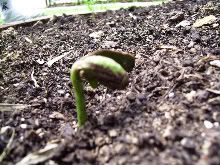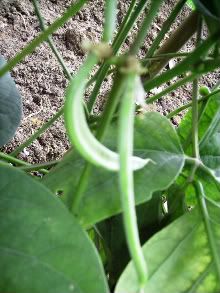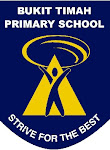Is it true that went you want to heat something, you actually put in more mass .
Is it true that when you speed something up, it has more mass?
How can you tell Einstien's Equation was even right?
Why can't you travel beyond the speed of light?
How do you make sure your thinking is the right one?
Can you tell wheter people are telling the right facts?
How can you tell the Earth is round?
How can you tell green is green, you may take what I call brown as green and being taught its green, can you tell the differents at all?
How do you tell one another out, can you even remember their voice, Why?
A fish and a fungi, a protist and an animal, a plant and a amphibians, how do you group them all?
Try these questions out, ymay look simple but do try them, remember don't stop asking questions in science question it! Thats how science actually works!
Posted by Pek Yu-Xuan Sean
How To Soar in PSLE - BTPS Way!!
Interact with complex questions / graphs / pictures to pick up valuable clues (don't highlight - just use your pen to underline words or scribble notes)
Start with Booklet A and do it meticulously with full focus - explore all 4 distractors before making final choice.
MANAGE your TIME - to score well, you need to try to finish ALL questions.
Specific answers = answers that are relevant to question.
When confused, choose any of the following strategies:
1. Ask, "What Science idea is being used in question?"
2. Pose other questions to clarify your thoughts
3. COMPARE to another set-up
4. COMPARE to a reverse situation
5. Connect to your knowledge in life (yes, you do have lots of prior / other knowledge)
6. Break down your answer in steps before crafting final answer.
Common problems with wrong answers:
*Answers are generic/vague and do not connect to that specific question
*Answers are not scientific and do not explain using Science ideas
*Answers do not make use of data provided when asked
*Answers did not make comparisons - use words like more/most etc..when asked
BTPS supports all P6 in achieving their PSLE GOALS!!
Start with Booklet A and do it meticulously with full focus - explore all 4 distractors before making final choice.
MANAGE your TIME - to score well, you need to try to finish ALL questions.
Specific answers = answers that are relevant to question.
When confused, choose any of the following strategies:
1. Ask, "What Science idea is being used in question?"
2. Pose other questions to clarify your thoughts
3. COMPARE to another set-up
4. COMPARE to a reverse situation
5. Connect to your knowledge in life (yes, you do have lots of prior / other knowledge)
6. Break down your answer in steps before crafting final answer.
Common problems with wrong answers:
*Answers are generic/vague and do not connect to that specific question
*Answers are not scientific and do not explain using Science ideas
*Answers do not make use of data provided when asked
*Answers did not make comparisons - use words like more/most etc..when asked
BTPS supports all P6 in achieving their PSLE GOALS!!
Tuesday, March 31, 2009
Science Around Me (SAM)
SAM is a Science journal that allows pupils to express themselves in their favourite ways about Science.
SAM is another great opportunity for pupils to THINK and TALK Science in a medium that is customised to their learning styles.
SAM allows teachers to informally assess understanding of the child and clarify misconceptions in their learning.
SAM is another great opportunity for pupils to THINK and TALK Science in a medium that is customised to their learning styles.
SAM allows teachers to informally assess understanding of the child and clarify misconceptions in their learning.
Factors Affecting the Environment by Gog Ru Yan - 6G

When Ice Changes into Water by Goh Chee Yan - 5G
Do you wonder whether the mass of ice changes when it melts into water. Try this out:
1. Put a few ice cubes into a plastic bag
2. Tie the mouth of the bag tightly
3. Weigh the bag of ice cubes (if there is condensation outside the bag, wipe it dry before weighing)
4. Place the bag in the sun
5. When ice has melted, wipe the outside of the bag dry (refer to step 3)
6. Weigh the bag
You will discover that the mass of the bag remains the same!
There is no change in mass when ice melts!!
1. Put a few ice cubes into a plastic bag
2. Tie the mouth of the bag tightly
3. Weigh the bag of ice cubes (if there is condensation outside the bag, wipe it dry before weighing)
4. Place the bag in the sun
5. When ice has melted, wipe the outside of the bag dry (refer to step 3)
6. Weigh the bag
You will discover that the mass of the bag remains the same!
There is no change in mass when ice melts!!
Simple Steps to fight Dengue by Elizabeth Wu 4C






